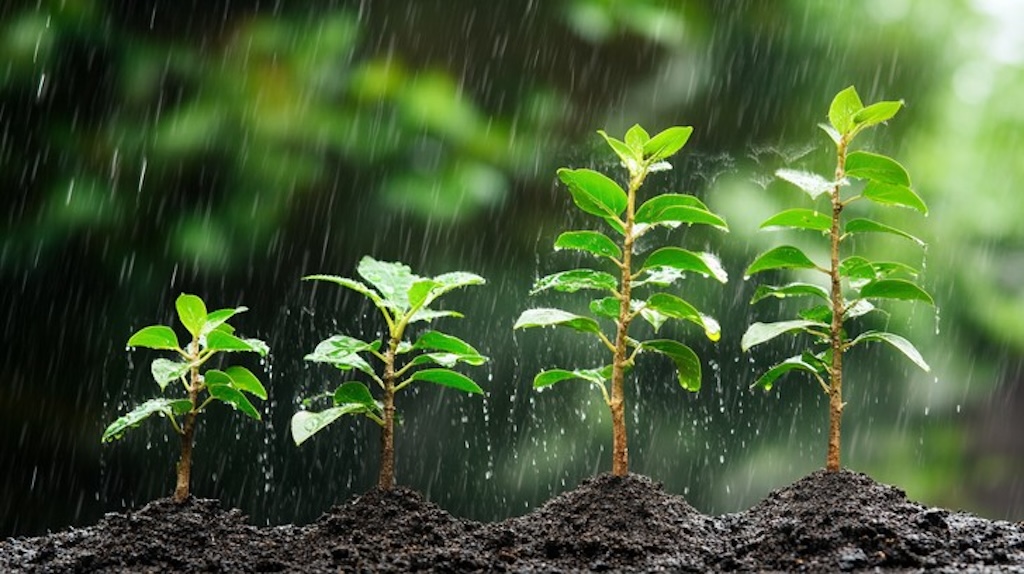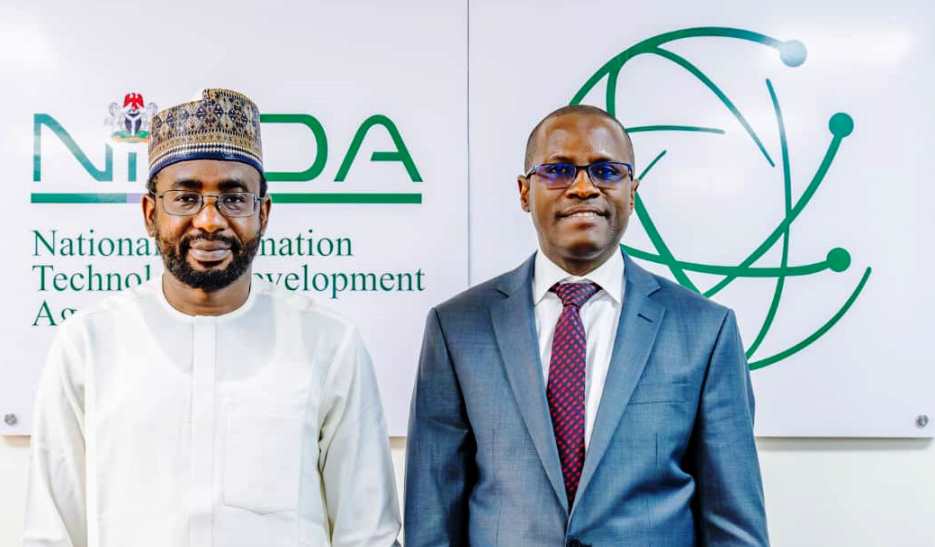Across Nigeria and West Africa, rain is more than a change in weather—it’s a symbol of hope, blessing, and new beginnings. Just as the arrival of the rainy season stirs expectations among farmers, businesspeople, and everyday families, ancient stories from the Bible use rain as a metaphor for abundance and opportunity. In a region where rainfall often determines the success of crops, markets, and livelihoods, these themes resonate powerfully.
Referencing the prophet Elijah, whose declaration—“the sound of abundance of rain”—signaled a dramatic turnaround after years of drought, this lesson holds significant meaning for modern-day Nigerians. Drought in the biblical context, as described in 2 Chronicles 7:13-14, often represented a spiritual or moral turning point, sometimes as a result of actions like corruption or injustice. In today’s Nigeria, ongoing conversations about governance, prosperity, and national progress also echo this theme. When rain returns—literally or metaphorically—it represents a season of new possibilities.
According to 1 Kings 18:1, after a period of hardship, God instructed Elijah to prepare the people for the blessing of rain. For Nigerians who have faced everything from economic hardship to rising food prices and limited job opportunities, the promise of abundance is particularly relevant. As rains restore farms in places like Benue or Kano, so too can renewed opportunities transform families, businesses, and nations.
What Does “Rain” Symbolise in Our Daily Life?
For many West Africans, rain is a clear sign of provision. In the Bible, rain was linked to blessings, fruitful harvests, new beginnings, and restoration. In modern terms, it also means job opportunities, breakthrough business deals, and open doors in education and career paths. To harness these blessings, preparation is key—both spiritually and practically.
Preparing for Your Harvest: Practical and Spiritual Steps
Just as local farmers in Ogun or the valleys around Accra would clear their fields and repair tools before the first downpour, individuals must prepare themselves to make the most of incoming opportunities. Lessons from 1 Kings 18:30-46 on how Elijah got his people ready for the rain offer timeless insights. Here’s how those approaches translate today:
- Repair Broken Foundations: Elijah rebuilt the altar—a reminder to restore what’s broken in our lives, homes, or communities. Just as families gather for prayer or local associations hold meetings to set plans, reconnecting with one’s values is essential.
- Prepare for Breakthrough Moments: Like Elijah setting the altar for fire, ready yourself mentally and spiritually for new opportunities. This means updating CVs, cleaning up your business space, or learning new skills ahead of possible job openings.
- Sow the Right Seeds: In Genesis, Isaac planted in faith and received a hundredfold. For modern Nigerians and Ghanaians, this could mean investing time, money, and effort into education, relationships, or side businesses—often without instant results, but with the expectation of future reward.
- Celebrate Small Wins: Elijah saw a tiny cloud but recognized it as a big sign. In Nigeria’s entrepreneurial sector, even a small contract or a callback is cause for hope. Doors open when smallest opportunities are appreciated and maximized.
- Be Ready For Movement: Elijah told Ahab to prepare his chariot. Just as transport affects trade in Lagos or movement fuels business in Kumasi, mobility—being ready to act, relocate, or expand—often distinguishes those who succeed.
- Upgrade Your Credentials: In today’s market, professional certifications, business registrations, and skills training are vital. Whether you’re in a tech hub in Lagos or a farm in Ekiti, being prepared and up-to-date gives you an edge.
According to Lagos-based career coach Chika Amadi, “Preparation determines participation in the season of opportunity. If your ‘fields’ are unprepared, you may watch while others harvest.” This applies whether the “rain” is a job opening, an investment windfall, or a chance at higher education.
Seizing Opportunity: Sowing and Reaping for Nigerians and Africans
As the old saying goes, “as you sow, so shall you reap.” For those navigating the economic climate in Nigeria and across Africa, the principle of sowing and reaping is crucial. Genesis 8:22 underscores, “While the earth remains, seedtime and harvest…shall not cease.” This biblical foundation mirrors agricultural wisdom, but it also shapes attitudes toward entrepreneurship, savings, and personal growth across the region.
Across Nigerian communities—whether in the rural stretches of Sokoto or the bustling tech clusters of Abuja—people combine hard work (“sowing”) with prayer and perseverance. Yet, experts warn not to expect instant results. Dr. Ladipo Fasanya, an economist based in Ibadan, notes: “Real growth—be it in finances, family, or faith—comes with time. Patience and consistency are as important as effort.”
Principles of Sowing That Nigerians Can Relate To
- Your results are shaped by your actions. Just as the harvest reflects the seed, business success or exam results follow careful effort.
- The reward is often larger than the seed—but only if you plant enough and nurture it well.
- Good seeds need good soil. That means choosing reliable partners, pursuing worthwhile ventures, or investing where the environment is supportive.
- Be patient. There is always a time gap between effort and reward—just as a farmer must wait out the growing season.
- Don’t be discouraged by small beginnings. The smallest ventures—like the mustard seed referenced in Mark 4:31-32—can yield dramatic benefits when given care and attention.
What Kinds of Seeds Should We Sow in Today’s Nigeria?
Amidst shifting economies and changing opportunities across West Africa, experts advise sowing beyond just finances. Here’s a local breakdown aligned with universal Christian teachings:
- Commit to regular prayer and meditation to stay grounded in faith (1 Thessalonians 5:17).
- Take in positive messages—through reading, reflection, and personal development.
- Build faith in yourself and speak positively. In a country where mental health is emerging as a priority, such affirmations foster resilience.
- Invest your resources wisely—in SMEs, saving for emergencies, or venturing into agri-business or tech, two burgeoning fields in Africa.
- Support your community, religious groups, or charitable causes, uplifting the less privileged according to biblical example.
- Pursue excellence and diligence in every task, from youth corpers to established entrepreneurs.
- Demand high standards in your applications and proposals, recognizing your value (as modeled in Exodus 12:35-36).
- Choose integrity in all dealings, championing honesty and accountability (Hosea 10:12).
- Remain consistent even during hard seasons; don’t give up, as modeled by Elijah’s servant who persisted until the rain fell.
Making the Most of the Rain: A West African Perspective
Seasonal rains have shaped the rhythms of life from Lagos to Lomé, influencing planting seasons, economic growth, and even cultural festivals. Today, these lessons apply just as clearly in entrepreneurship, education, and community development. The coming “rain”—whether literal or figurative—presents immense opportunity, but only those prepared will maximize it.
As opportunities and challenges—both local and global—shift rapidly, success will belong to those who combine preparation, faith, and perseverance. The question for every Nigerian and West African is: when the “rain” comes, will you be ready to reap your harvest?
What does “rain” mean in your life or community this year? Are you already preparing your “fields” for a new season of opportunity and blessing?
Drop your thoughts below and join the conversation! Share your own stories of preparation, sowing, and reaping—and tell us what “abundance of rain” looks like in your everyday life.
For general support or feedback, reach out at support@nowahalazone.com.
Don’t forget to follow us on Facebook, X (Twitter), and Instagram for more updates, stories, and conversations!










